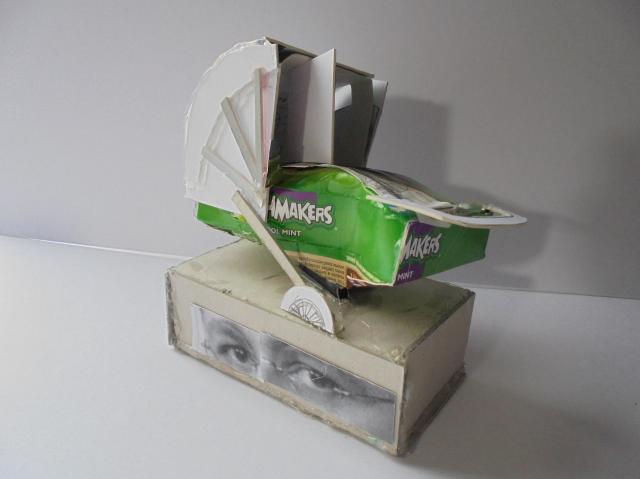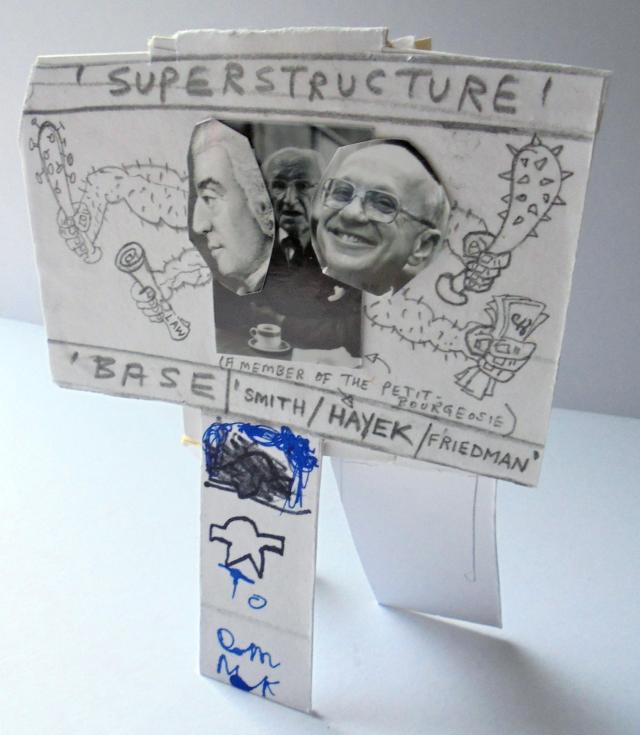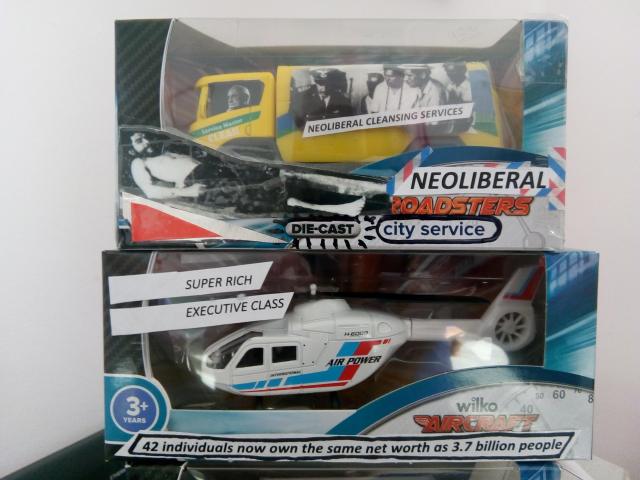Artist’s Statement:
‘Boy’s Weeklies’ was an analysis of the ‘natural’ form and content of boy’s comic’s, in relation to the social and political context of Britain in 1940.
Orwell’s essay analyses the motive forces behind ‘our’ cultural products, identifying both class relations/struggle and ‘a process of Americanisation’ as critical factors in both cultural form and content. The essay, a critical realist appraisal, reveals the ‘causal networks’ (Brecht) – social, educational, economic – determining British cultural forms. As Orwell notes, the working class readership ‘get what they are looking for, but they get it wrapped up in the illusions which their future employer’s think suitable for them’. Orwell here identifies the false consciousness produced by and within the culture of capitalism.
 ‘Prefab’: found object/photograph 12cm x 7cm
‘Prefab’: found object/photograph 12cm x 7cm
My objects apply Orwell’s critical realist approach as means to interrogate received narrative and convention. The object ‘Prefab’ (discarded cigarette packet and photographic image) presents a collage/assemblage in which conceptions of the daily life of a Lambert & Butler smoker are juxtaposed with the ‘prefab’ housing of the post-war Keynesian Boom Years. This juxtaposition of found material and generated image explores the interface of the quotidian to the causal network of the State and economic ideology. A Brechtian ‘things as they are and things as they really are’ materialist conception of society.
 ‘Pram’ found objects/photography and card 20x15cm
‘Pram’ found objects/photography and card 20x15cm
 ‘Superstructure’ photography and drawing on card 17x12cm
‘Superstructure’ photography and drawing on card 17x12cm
‘New data from Credit Suisse means 42 people now own the same wealth as 3.7 billion people.’ Michael Roberts (thenextrecession.wordpress.com)
 ‘Cleansing Services’ 22cm x 12cm
‘Cleansing Services’ 22cm x 12cm
In the midst of capital’s current crisis: mass unemployment as a result of AI, rising levels of corporate and private debt and the $4 trillion invested in non-renewable energy systems, ‘Supermarket’ provides a critical realist challenge to neoliberalism’s dominant conventions and their inability to envision change.
With a specific focus upon Orwell’s essay ‘Boy’s Weeklies’, the objects explore the interface between the totalitising conventions of the dominant social class – commodity fetishism, austerity, financial de-regulation – and the ability of the disempowered to de-naturalise such convention as a means to establish new social forms.
